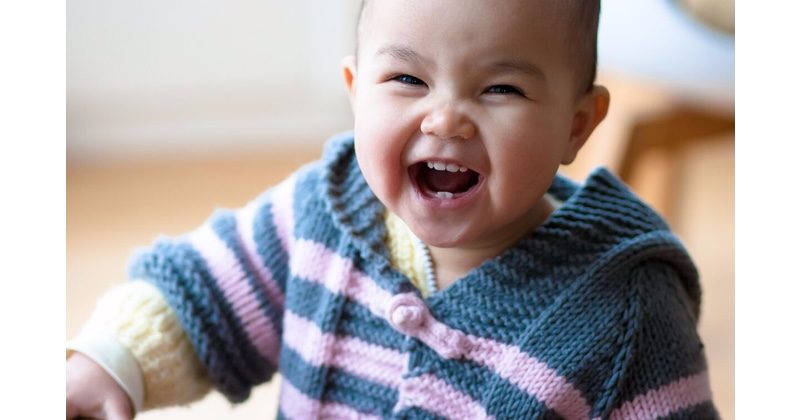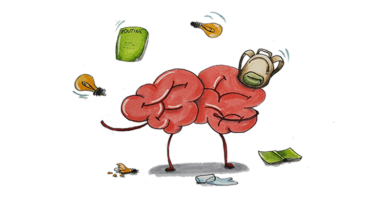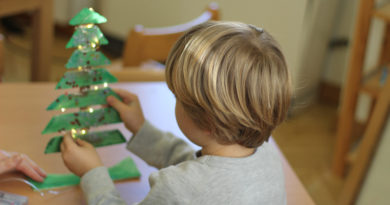Generation Alpha
“Generation Alpha” is the term that has been coined to refer to the generation born after 2010. These babies are being born to Millennials, many of whom still remember the sound of dial-up internet. So much has changed since the internet boom. Children today are digital natives and it’s doubtful they will experience anything slower than 5G in their futures (in the developed world), as instant access will become even more standard than it is today. Those in this generation are the ones who will live to see the 22nd century. These are the ones toddling around my feet on a daily basis. It’s hard to wrap my head around the future when I’m knee-deep in diaper changing and cheerleading every positive choice the littles around me are making. “Excellent job taking the lid off of that container Sam, now let’s try to keep the paint only on the paper”; or “I can tell you really want that toy that your friend has, he makes playing with it look so fun, it’s hard to be patient and wait our turn, right? What can we do while we are waiting for that toy? Here’s some playdough or storybooks or balls…” These are things I find myself saying to the one-year-olds that I have the privilege of teaching.
Education Matters
As an educator and mother, I know things are changing in schools to better prepare our children for their future in a tech-driven world. Where schools were once set up to create good factory workers who sit and stand when told with teacher directed (authoritarian) classrooms, pedagogy training now involves how to direct an inquiry-based classroom, how to get more student choice into the day, and how to differentiate for all types of learners. These are not easy tasks to balance and classroom size can make a huge difference. I feel quite fortunate, though: working with preschoolers means that I have lower student/teacher ratios and I have the time to really observe their developmental stages and react to their needs. I’m reminded of how important my job is by Suzanne Bouffard (2017), who calls preschool the most important year for a child. This is where children form their first impressions of school as they further define themselves as separate beings from their parents. Preschool is where children begin integrating into society and begin those 21st-century skills of process learning and collaboration. “It’s time to sing our songs for our big Christmas concert everyone, let’s hold hands. After we can have a nice snack. Becca, let’s take that toy out of your mouth.”
For some parents, it may feel a bit overwhelming to choose the right preschool for their little one. Educating our offspring is possibly the most important duty of a parent and who you include in your village to help you with this task is no small decision. Options for preschool here in Switzerland are often bilingual and can include Montessori, Steiner or Waldorf principles. I highly recommend using this time in your child’s life to gain another language. My own child learned to understand German in about 4 months and could talk pretty well (for a 4-year-old) in both English and German two months later. In the English-speaking school where I work, students who were initially only Swiss-speaking can communicate well in English at about the same rate. Many foreign and local parents are taking advantage of this preschool time to increase their child’s English skills before jumping into the Swiss school system. Other native-English-speaking parents feel it is important for their child to identify with their home culture before broadening to the international world. It can be hard to know what the best option is.
To any new parents out there, Bouffard (2017) has some great advice for looking for that ideal preschool:
Don’t worry about a gorgeous facility. The most important things to look for is how the adults interact with children. You want to see them engage with children in a way that is positive, nurturing and genuinely curious.” In fact, according to her research, the best pre-K programs are staffed by trained teachers who know how to build students’ self-regulation skills; nurture their creativity and curiosity, and foster an environment of playful learning. You want to teach children how and why to behave. What to do instead of just what not to do,” said Bouffard. Effective pre-K classrooms teach self-regulation through songs and routines; picture prompts can remind children of the steps in a process. Skilled preschool teachers have strategies for redirecting student behavior and use language that provides instruction.
I personally love Montessori. I know my students are getting highly individualized attention specific to their development stage. I am amazed at how early children can pour their own drinks, hang up their own coats, and stay fascinated with cylinders.
From my observation, the various preschool centers prioritize different educational values. One may make it a very high priority to be outside every day for as long as possible or go on big outings. Others may prioritize arts-and-crafts skills or language acquisition. It’s important to agree with the concept of the school your child will be attending and also to look out for good staffing ratios.
Our little ones have many years of education ahead of them, and their preschool time should be the firm foundation that a love of learning is built upon. Creativity, collaboration and understanding processes will be very important in the future and I’m happy to be able to be fostering them now in the rising alpha generation. Who knows what major developments they will lead the way in by 2045? AI? Personalized medicine? Space travel? Climate regulation? Day by day these children are learning the skills that they need to succeed. “OK, kids, let’s explore dinosaur footprints in the playdough today.” “Neeti, you counted all the apples in our fruit bowl, great job!”
Back at home, I am helping my oldest chose an apprenticeship. Unfortunately, kids don’t stay cute little babies and toddlers forever As I’m fantasizing about my teenager leaving the nest I worry if I have done enough. Does she love learning? Is she curious? Will she and her sister ever get along? “All right kids, it’s time for dinner. Please end all chats, leave your phone in your room and set the table.” Raising the future generation isn’t easy, but I have no doubt the work I do is making a difference, one conversation at a time.
By Jana Parkin
Jana is an American-born expat, mother of three and a pre-school teacher at Children First Association, an international non-profit (Verein) supporting bilingual families in Zurich since 2006. Children Firstoffers classes for children up to seven, a day nursery ages 0 – 2, Montessori pre-school ages 2 to 4 and a private kindergarten ages 4 to 6.
Photo by Cloudia Chen
Cloudia Chen is a portrait photographer specializing in family and children’s portraits, as well as Swiss CV, business headshot and event photography. Before settling in Zurich, she lived in Mainland China, Hong Kong, London and the South of France. Her photos and articles have been published in various social media and popular travel magazines in China. To contact her please visit her website www.cloudiachen.com.
Bouffard, S. (2017). Most Important Year: Pre-Kindergarten and the Future of Our Children. Penguin Publishing Group.
D. F. (2017, September 15). Why Preschool is the ‘Most Important Year’ In a Child’s Development. Retrieved from https://www.kqed.org/mindshift/49205/why-preschool-is-the-most-important-year-in-a-childs-development
Flux Trends (2016) Meet Generation Alpha. Retrieved from http://www.fluxtrends.com/meet-generation-alpha/




